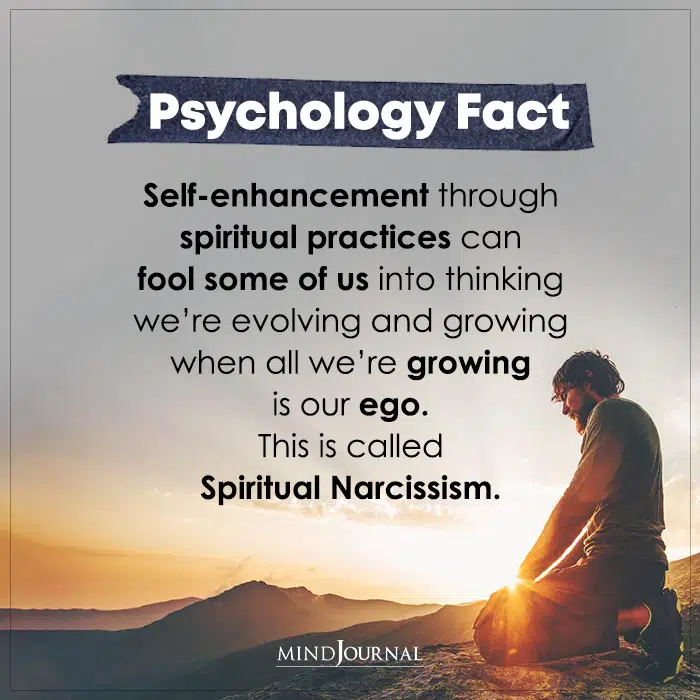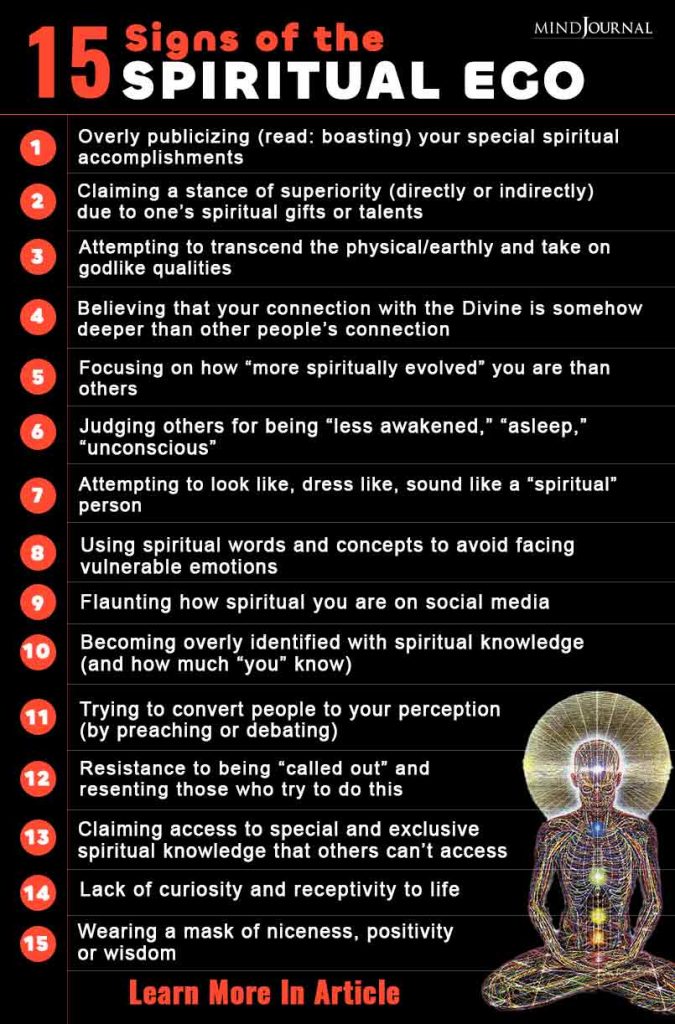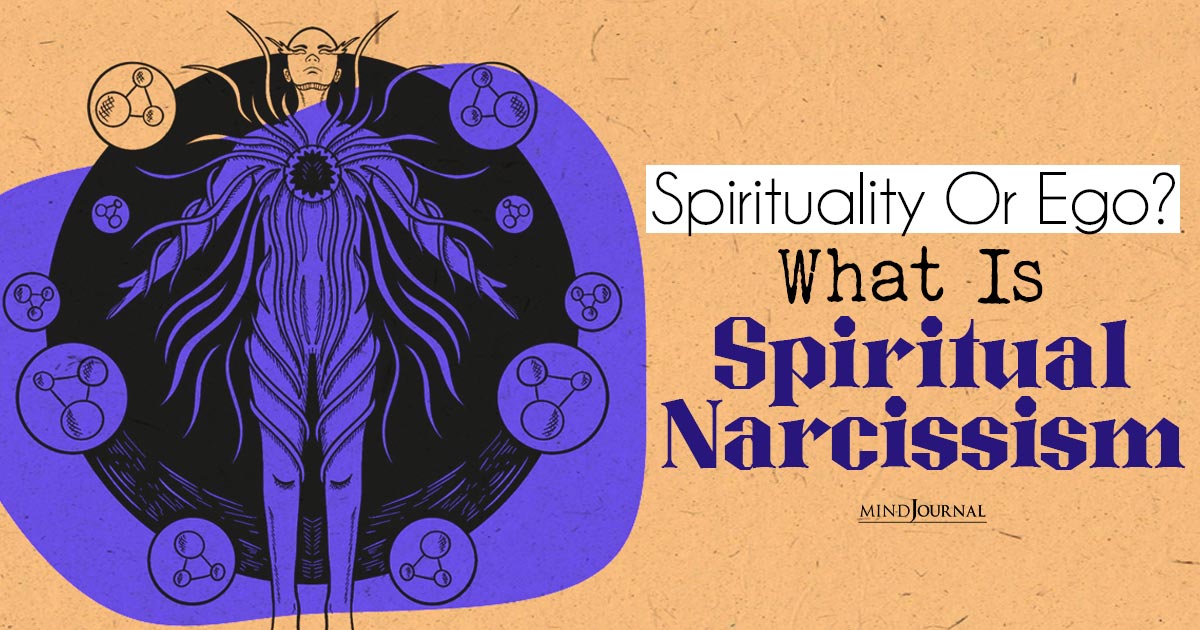Ever met someone who seems to have achieved spiritual enlightenment but is more interested in flaunting their “superiority” than spreading love and compassion? Enter the realm of spiritual narcissism – a phenomenon that hides behind the façade of spirituality while harboring self-centered motives.
These individuals exude an air of spiritual superiority. It’s like meeting a guru with an ego the size of Mount Everest. They are quick to shower you with their seeming enlightenment, yet their actions may leave you feeling disheartened or even manipulated.
Today, let us uncover what is spiritual narcissism, explore the spiritual narcissist signs, delve into the relationship between spirituality and narcissism, and equip ourselves with the knowledge on how to spot a spiritual narcissist. So let’s delve into this intriguing but often overlooked aspect of spirituality together.
What is Spiritual Narcissism?
At its core, spiritual narcissism is a psychological pattern where individuals exploit spiritual practices and beliefs to reinforce their own inflated sense of self-importance.

These individuals are often driven by a deep need for validation, admiration, and control. They may adopt spiritual teachings and use them as a mask to bolster their ego rather than genuinely seeking growth and connection with the divine.
Related: Spiritual Ego: 15 Signs Of A Spiritual Narcissist
5 Common Spiritual Narcissist Signs
Ever crossed paths with someone who radiates spirituality, but their vibe feels more like self-glorification? Here are some of the most common spiritual narcissist signs that you must be aware of –
1. Lack of Empathy
One of the defining characteristics of spiritual narcissism is the absence of genuine empathy. These individuals tend to be more focused on their own spiritual journey and personal gains than on supporting and understanding others.
2. Attention-Seeking Behavior
Spiritual narcissists crave attention and admiration. They may go to great lengths to be seen as enlightened or spiritually advanced, seeking validation and recognition from others.
3. Manipulation and Exploitation
Behind the spiritual facade, spiritual narcissists often manipulate and exploit others for personal gain. They may use their perceived spiritual authority to control and influence those around them, sometimes even crossing ethical boundaries.
4. Lack of Self-Reflection
Unlike genuine seekers of spiritual growth, spiritual narcissists rarely engage in deep self-reflection. They are more focused on external appearances and maintaining their inflated ego rather than addressing their own flaws and shortcomings.
5. Grandiosity and Superiority
Spiritual narcissists often display an exaggerated sense of self-importance. They perceive themselves as being more spiritually evolved than others and may belittle or dismiss those who do not share their beliefs or practices.

Spirituality and Narcissism: A Complex Relationship
It is important to recognize that not all spiritual individuals are narcissistic, and not all narcissists are drawn to spirituality. However, there can be an interplay between spirituality and narcissism under certain circumstances.
1. Spiritual Bypassing
Spiritual narcissism can manifest as a form of spiritual bypassing, where individuals use spiritual practices to avoid facing their emotional wounds or engaging in necessary personal growth. By adopting a spiritual persona, they create a shield against their own vulnerabilities.
2. Sense of Specialness
The quest for transcendence and connection with something greater than oneself can sometimes fuel narcissistic tendencies. The desire to be unique or special can lead individuals to adopt spiritual practices as a means to set themselves apart from others.
Related: 5 Signs of A Spiritual Narcissist
3. Charismatic Leaders
Spiritual communities can be susceptible to the influence of charismatic leaders who may exploit their followers for personal gain. Narcissistic individuals often thrive in such positions, using their spiritual authority to manipulate and control others.
How to Spot a Spiritual Narcissist: 4 Tips
We’ve explored what is spiritual narcissism and spiritual narcissist signs, but now it’s time to arm ourselves with the tools to spot these elusive beings in the wild.
Picture this: You’re walking through a spiritual gathering, surrounded by people adorned in flowing robes and chanting mantras. But wait! Amongst the sea of serene faces, there lurks a spiritual narcissist, ready to hijack your journey for their own self-serving purposes.
But don’t worry! We are here to help you uncover the secrets to identifying these deceptive souls. So let’s dive in –
1. Observe Actions, Not Just Words
Pay close attention to how individuals behave, rather than getting swayed solely by their spiritual rhetoric. True spiritual growth is not merely a collection of lofty ideals; it is reflected in consistent compassionate actions.
2. Trust Your Intuition
Ah, intuition, that subtle yet powerful gut feeling that nudges us in the right direction. When it comes to identifying spiritual narcissists, your intuition can be a valuable compass.
If something feels off or you sense a lack of genuineness, trust that inner voice. It’s like having your very own spiritual truth detector.
3. Seek Balanced Perspectives
Diversity is the spice of life, and it applies to our spiritual journeys as well. To avoid falling into the trap of blindly following a charismatic narcissist, engage and interact with a variety of spiritual teachers and communities.
This allows you to gain a broader perspective and prevents you from getting caught up in the web of a single self-proclaimed guru.

4. Look for Humility and Authenticity
Humility is like a lighthouse guiding us through the stormy seas of spiritual narcissism. Genuine spiritual seekers often display humility, acknowledging their imperfections and recognizing that they are on an ever-evolving path.
They don’t claim to have all the answers or present themselves as infallible. Spiritual narcissists, on the other hand, tend to project an air of infallibility and perfection.
Spotting a spiritual narcissist can be a challenging endeavor, but armed with these tools, you can navigate the spiritual landscape with confidence and discernment.
Related: Religious Narcissistic Abuse: 15 Tactics Narcissists Use To Control You
Takeaway
Spiritual narcissism can be a deceptive and harmful phenomenon that masks itself behind the veil of spirituality. By understanding the signs and dynamics of spiritual narcissism, we can navigate our spiritual journeys with discernment and authenticity.
By staying true to yourself and staying vigilant, you can steer clear of the pitfalls of spiritual narcissism and embark on a genuine and transformative spiritual journey. Remember, true spirituality lies in the pursuit of inner transformation and the humble recognition of our shared humanity.
Frequently Asked Questions (FAQs):
What is a spiritual narcissist in the new age?
In the new age, a spiritual narcissist is someone who uses spiritual beliefs to boost their ego and manipulate others.
How does a narcissist react when they can’t control you?
When a narcissist loses control, they may become angry, manipulative, or resort to guilt-tripping and gaslighting tactics.
How do you deal with a narcissist spiritually?
Dealing with a narcissist spiritually involves setting boundaries, practicing self-care, and fostering inner strength through mindfulness and self-awareness.









Leave a Reply
You must be logged in to post a comment.